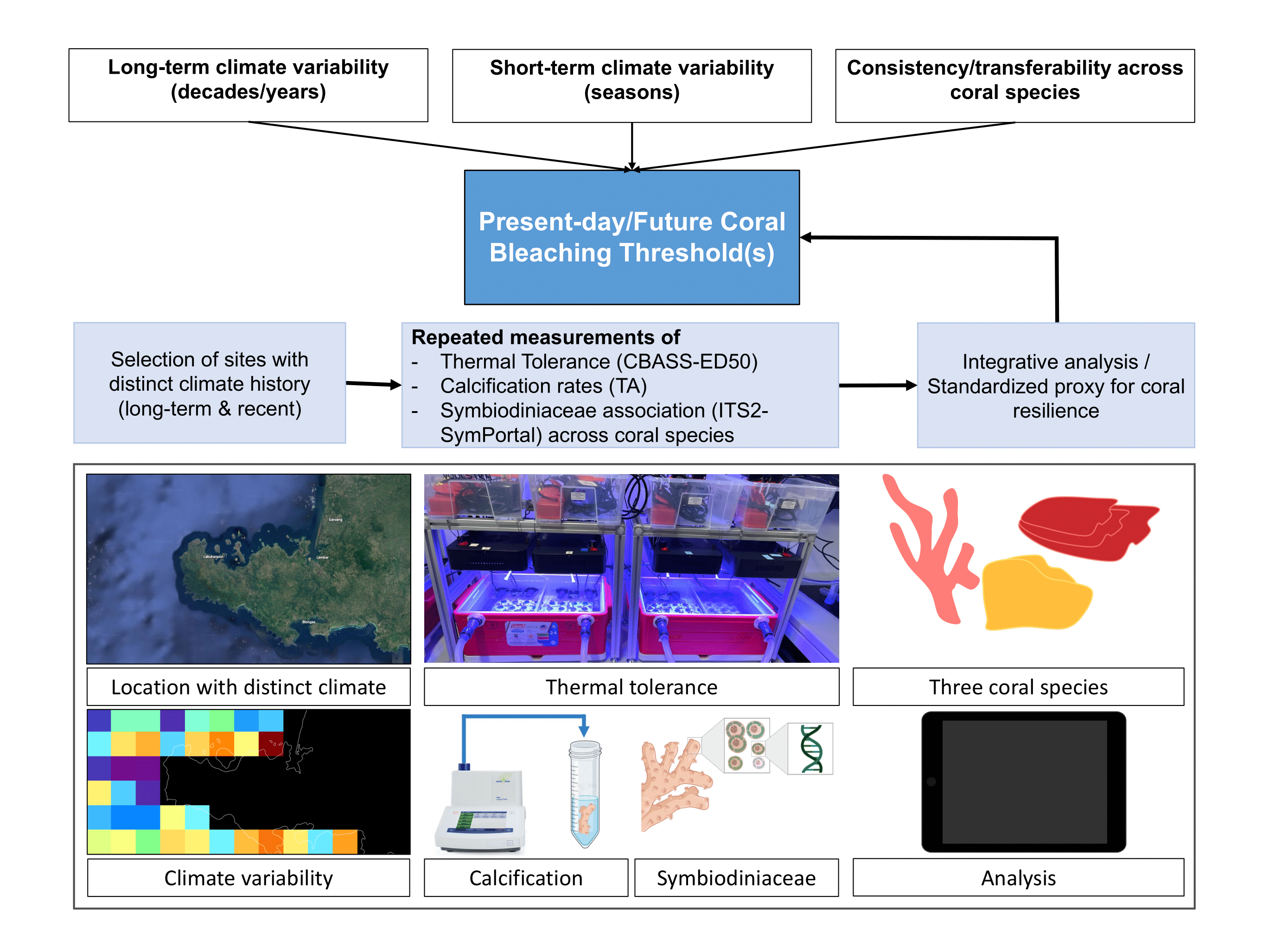
Climate change and environmental degradation are threatening the ecosystem services of coral reefs globally and thereby the livelihoods of more than 500 million people. Coral bleaching, the loss of photosynthetic microalgae of the family Symbiodiniaceae, triggered by ocean warming is now the main driver of reef ecosystem loss. Without their microalgal symbionts, corals lose their primary source of nutrition, eventually causing starvation, reduced fecundity and growth, and widespread coral mortality. But not all reefs are dying (equally). While the common notion is that corals are adapted to their latitudinal climate and bleach and suffer mortality at just 1-2°C above their mean summer maximum temperatures, corals show regional variation with evidence that long- and short-term climate variability affect coral thermal tolerance and bleaching susceptibility. However, we do not know to what extent differences in the thermal history between corals and reefs affect their climate resilience and whether such inferences are universally applicable. Here we propose to examine bleaching response and calcification rate of four common coral species from reefs that differ in their past and recent climate variability, but not their climatological mean temperatures, to gain insight into how future warming and thermal history may affect coral resilience. Using a recently developed approach that leverages acute thermal stress tests to determine a standardized proxy for coral bleaching susceptibility, we will compare thermal thresholds across reef sites and coral species to better understand how past and recent climate variability contribute to contemporary patterns of bleaching susceptibility. Importantly, we will align thermal thresholds with calcification rates and associated Symbiodiniaceae. The latter of which is known to affect thermal tolerance and calcification. Although thermal tolerance and coral growth are considered diagnostic for coral resilience and health, their relationship and interdependence is actually poorly understood. For instance, it is unknown whether increased thermal tolerance coincides with a reduced calcification capacity, critical to forecast the effect of future climate on reef survival. Taken together, the here-proposed research aims to better understand the contribution of climate variability on patterns of coral resilience. This is crucial in order to better understand the impact of climate change and help develop projections that provide more robust assessments of future trajectories.
Principle Investigator
Christian Voolstra (University of Konstanz)
Project Scientist
Hannah Manns (University of Konstanz)


